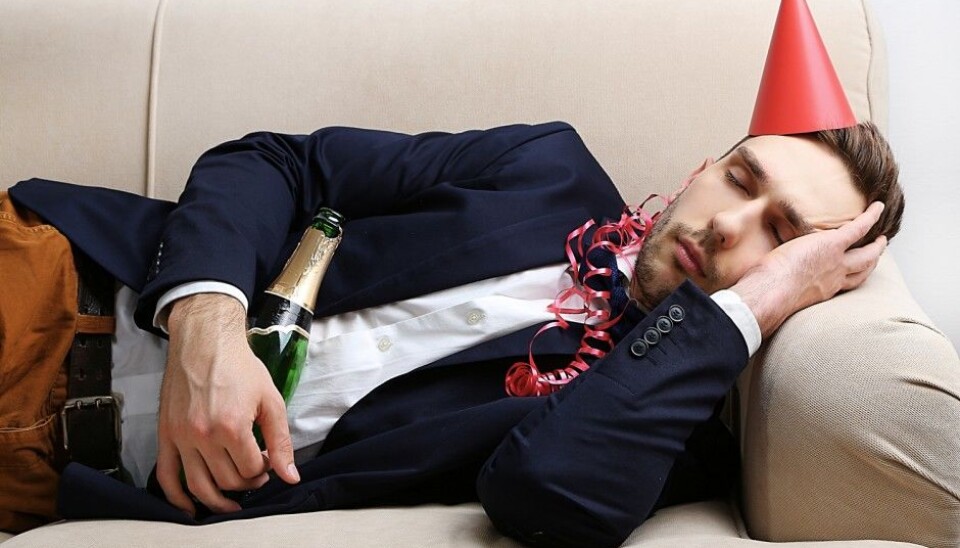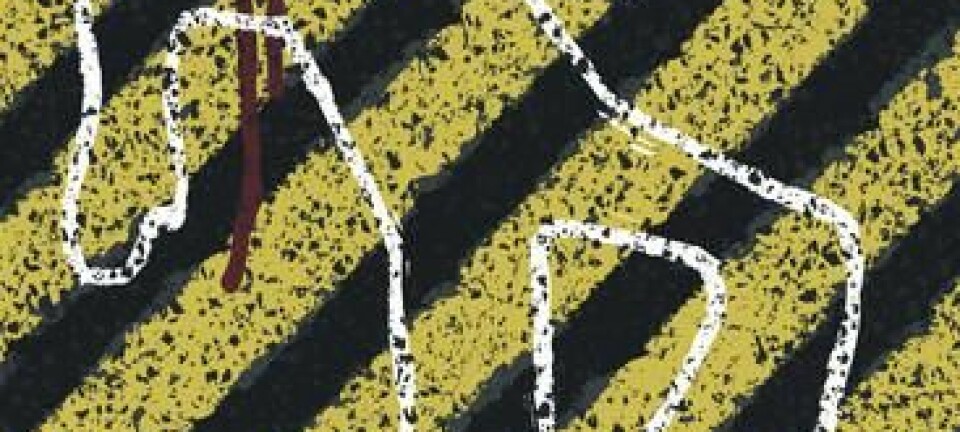
One in four has gone to work with a hangover
In the past year, a quarter of Norwegians say that they have gone to work with a hangover or have been ineffective due to alcohol intake the night before, and five percent have taken a sick day for a hangover.
If you have been inebriated on a work night it could reduce your efficiency on the job or make you stay home altogether. How big a problem is this in Norway?
The Norwegian Institute of Public Health was asked by the Norwegian Directorate of Health to arrange a study of employees in 22 firms from eight different lines of work. The idea was to assess the dimensions of such problems in terms of costs and safety risks in various lines of work.
Reduced productivity and absenteeism are immensely costly for employers.
Alcohol use undermining work
As many as one in four persons admit to having gone to work at least once in the past year with a hangover, or having lacked concentration and full capacity on the job because of alcohol intake the previous day.
Five percent admit to taking a sickness leave of absence because of drinking at least once in the past year.
This was revealed by 2,430 participants who filled out questionnaires. Participation was voluntary and the answers were anonymous, both for the individuals and their exact places of work.
“The study shows that use of intoxicants during working hours is a rare problem in Norway. But ineffectiveness caused by alcohol is widespread,” says Senior Researcher Hallvard Gjerde, who works at Oslo University Hospital and is one of the researchers behind the report.
The questionnaire was supplemented by saliva samples that were analysed for alcohol content. Only one of the employees in the test had any traces of alcohol in their saliva.
Among the young
The share who admitted to such occasional problems was higher than in previous Norwegian studies, in which only one to two percent informed of skipping work a whole day because of alcohol use in the past year. Two percent in an earlier survey said they had skipped part of a workday.
In one earlier study, just 11 percent admitted to having been unfocussed at work in the past 12 months because of imbibing.
But in another Norwegian study, eight percent among employees under the age of 35 admitted to using an egenmelding [a form for self-reporting illness, for up to three days without going to a doctor for a medical certificate] for hangovers, which indicates that the problem to a certain extent decreases with age.
The studies show that shirking work because of hangovers occurs at least once a year among one to eight percent of employees.
Differences according to line of work
Self-reported absences caused by alcohol in the past 12 months varied distinctly between different lines of work, from one to 20 percent. The bar and restaurant trade led the aftereffects pack in this context.
Bartenders and other employees in the restaurant business reported the most alcohol-related absenteeism.
The share who made their way to work, but who were less effective than usual because of hangovers, varied even more from one trade to another. From 12 to 66 percent in the different lines of work reported having been less effective on the job, thanks to alcohol. This problem was also most common in the restaurant trade.
“This is partly related to the fact that a larger share of these employees is under the age of 30,” says Gjerde. But the gaps between the branches can also indicate big differences in their respective general drinking habits.
Problem for researchers, media folk and government employees
The problem is also reasonably rampant in the financial sector, the media and research and public administration. As many as four in ten admitted to having a bad hangover or reduced concentration (nine percent) because of excessive drinking the previous evening or night.
One in ten working in the financial sector admitted that alcohol had caused them to skip work at least once in the past 12 months. This is twice the five percent average among all employees in the study.
Four in ten restaurant/bar workers reported drinking alcohol in the past two days. These workers also imbibed the highest episodic larger doses (at least six units in a setting at least once a month).
“The high share seen in the restaurant trade can also be linked to the queries there being made on weekends, when most drinking occurs in Norway. Studies abroad have found the same thing,” says researcher Hilde Marie Erøy Edvardsen, who led the study.
Persons employed in the health services reported the lowest use of alcohol, alcohol-related absenteeism and inefficiency. Industrial employees also claimed that alcohol had little impact on their performance or ability to meet up for work.
More men
The survey also showed differences in this context as regards to gender and age.
About twice as many men as women reported alcohol-related absenteeism.
This is also reflected in international studies of causes of death. Globally, some 3.8 percent of all deaths are related to alcohol. Alcohol can be said to be killing 6.3 percent of men but only 1.1 percent of women.
Little absenteeism from drugs
Much fewer employees reported missing work or being ineffective because of psychoactive prescription or illicit drugs. A total of 1.3 percent stayed home on a workday and 0.8 percent had been ineffective because of sedatives or sleeping pills, etc.
Even fewer admitted to skipping work or being inattentive at work because of illicit drugs (0.2 and 0.4 percent, respectively).
-------------------------------------
Read the Norwegian version of this article at forskning.no
Translated by: Glenn Ostling
































